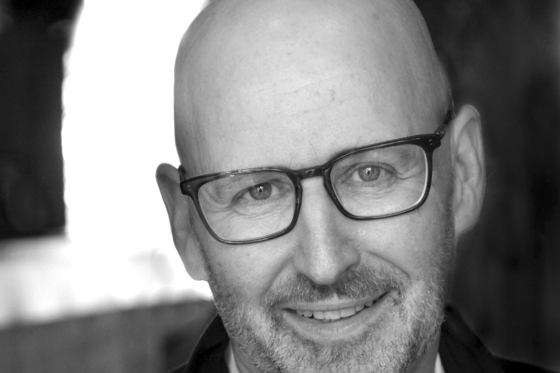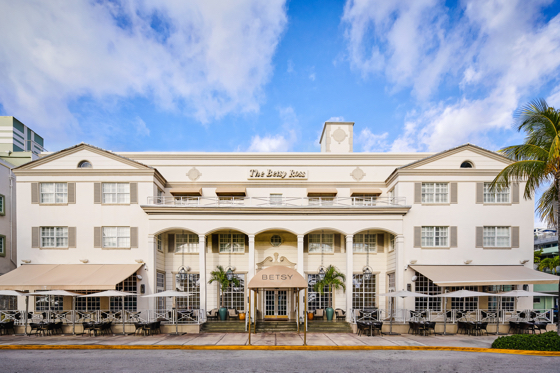Jonathan Plutzik calls today an existential moment for the hospitality business broadly defined. “We’re all in a business that if you’re not open you’re not taking in money, zero revenue. That’s not a very good business model,” said the co-owner of The Betsy on South Beach in Miami Beach, Florida. “We have to get to the other side. They’re shipping vaccines. There is a glimmer of hope.”
Plutzik, who owns the property with his wife, Lesley Goldwasser-Plutzik, and son Zachary Plutzik, who is the hotel’s managing director, also recognizes he is lucky to be operating in Miami Beach this time of year. It’s where people want to travel.
“It’s a fascinating time. The business has been remade, not ours but the hospitality business where I think there’ll be fewer jobs, period,” he said. “People are going to be more efficient, more disciplined about hiring, more this, more that, and there are consequences for human beings out there. The hospitality business was always a business where there were a lot of entry-level positions and you can build a career going from pool boy to general manager. It has been obviously an immigrant-rich industry, too, and all those things now are challenged in some way.” (To read Part 1 of this interview with Jonathan Plutzik, click here.)

For the Betsy, collaboration extends to the arts community, and the family continues to work through ways to manage its programs in a COVID-informed environment. Plutzik said the writers in residency program is continuing and the team is working hard to figure out how to keep nightly live music alive.
“We’re in dialogue with arts organizations, finding new ways to work together. For example, how can we present virtually in a way that resonates with people and how do you pay those artists? All the arts energy still exists, but I’ve also seen some really terrible numbers about losses in the arts community.”
Plutzik pointed to “the 1%,” the affluent community where wealth continues to be created, hoping that their philanthropy toward the arts community continues. “The bottom line is we’re going to go figure it out together [with the arts community],” he added. “We are all in on our arts programming. The art in our galleries around the property is for sale. We will continue to show art and promote. We will support artists in a bunch of different ways, but there’s no silver bullet.”
The Plutziks are also wrestling with how to bring back live music and has outdoor spaces that are appropriate. “I often quote [New York restaurateur] Danny Meyer, and he always talked about post-9/11, the post-financial crisis, and the role restaurants play. I’ll extend this to hospitality. As people are desperate to go back to familiar places, comfortable places, they want to go back to the restaurants they love or the hotels they love. They want to sit in the lobby or sit at a table inside or outside. They want to be normal and get their world to a better place.
“It’s really important that we try to create safely some ways for people to behave normally. I say that with care, not by throwing open your doors and stuffing hotels with people and not having social distancing… We know people are waiting for us to open… I’m not saying there’s pressure, but we play a role to help people kind of get back to normal. But we also have a real burden and duty to keep our eye on the ball from a safety point of view.”
Plutzik went on to talk about the financial impact on everyone involved in the hotel business, from owners to line staff. “We’re all kind of in one of the most complex boats we’ve ever been in,” he said. “It’s necessary to keep talking about it openly and not pretend that it’s less complicated than it is.”
The happy place
Plutzik said the team’s focus is going to be on making guests feel comfortable and loved. He said some rooms will be taken out of inventory and generally open access to the building will be limited.

“Actually, at the moment we’re not focused on how many [guests they can safely accommodate],” he said. “We’d rather in these early days do fewer. We’ve said to our food and beverage people, ‘I guess when you do your reports every night, you’ll be telling us how many covers you did, but that’s not the thing to celebrate, frankly, at all.’ The goal is to do it safely for all of our employees and all of our guests. We’re all challenged now every day to keep reminding ourselves every five or 10 minutes about what the real objective is – making guests comfortable that they made the right choice in what is a profoundly scary time… It’s not so easy to say or do because we all have bills to pay and people to pay. But this is a moment to think about it really carefully every day.”
The natural optimist also said the group has a good idea about what it takes to create a hospitality place with a soul, a luxury one at that.
“We have a lot of optimism about humanity’s need for places with souls that comfort them and elevate them. And by the way, that’s not in a boring way – it’s in an energetic way, in a way that stimulates them without compromise,” Plutzik added. “At the moment, our goal is to make this successful and contribute, in some way, to having a place that helps our little sliver of the people that interact with us get to a better happier place faster.”
Plutzik concluded, “We all have, pardon me, shit that we’re dealing with. But maybe staying with us helps them for four days or 14 days or 40 days to deal with it more productively because we all have to get to the other side of this thing. We will continue to confront the next challenge because now we know this is probably not the last one of these things.”

